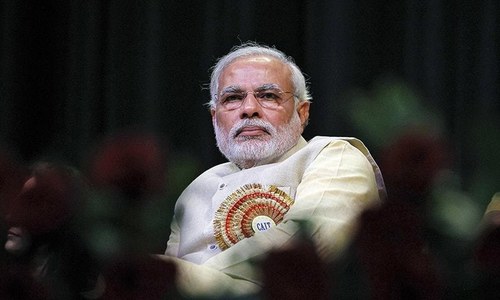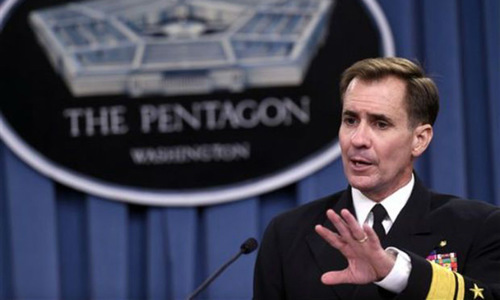US lawmakers move bill to declare Pakistan 'state sponsor of terrorism'
WASHINGTON: Two United States lawmakers moved a bill in Congress seeking designation of Pakistan as a 'state sponsor of terrorism' on Wednesday.
The bill titled the Pakistan State Sponsor of Terrorism Designation Act was introduced by Chairman of the House Subcommittee on Terrorism Ted Poe and Congressman Dana Rohrabacher at a time when Prime Minister Nawaz Sharif is in the US to address the United Nations General Assembly.
Congressman Poe termed Pakistan an "untrustworthy ally" which he alleged "has also aided and abetted enemies of the US for years".
"From harbouring Osama bin Laden to its cosy relationship with the Haqqani network, there is more than enough evidence to determine whose side Pakistan is on in the War on Terror. And it’s not America’s," Poe said.
"It is time we stop paying Pakistan for its betrayal and designate it for what it is: a state sponsor of terrorism," the lawmaker said.
He added that US President Barack Obama must issue a report within 90 days of passage of the bill detailing whether or not Pakistan has provided support for 'international terrorism'.
"Thirty days after that, the Secretary of State must issue a follow-up report containing either a determination that Pakistan is state sponsor of terrorism or a detailed justification as to why Pakistan does not meet the legal criteria for designation," he said.
Congressman Dana Rohrabacher has a history of making anti-Pakistan moves in Congress but has not always been successful in achieving his objectives.
Read more: Rohrabacher and Balochistan
Earlier in July, a US Congressional panel titled “Pakistan: Friend or foe?” – where Rohrabacher also spoke – came close to challenging Pakistan's existence as a state. “I have never heard such harsh comments being used against a US ally,” said a Western journalist after the hearing.
The panel had demanded cutting off all US assistance to Pakistan to persuade Islamabad to act against the Afghan Taliban groups allegedly using its territory to launch operations into Afghanistan, a move that, at the time, Foreign Affairs Adviser Sartaj Aziz said was motivated by “baseless concerns” of “a section of US lawmakers”.
As Pakistan prepares to highlight the current situation in India-held Kashmir at the UNGA and India plans to counter it by raising the Baloch issue, the United States has made it clear that it will not back either side and believes the Kashmir dispute should be settled bilaterally between Pakistan and India.
A day earlier, however, PM Nawaz in a meeting with US Secretary of State John Kerry asked for US help to resolve matters between Pakistan and India. Kerry expressed concern over the recent violence in Kashmir — particularly the Uri army base attack — and the need for all sides to reduce tensions.

















































